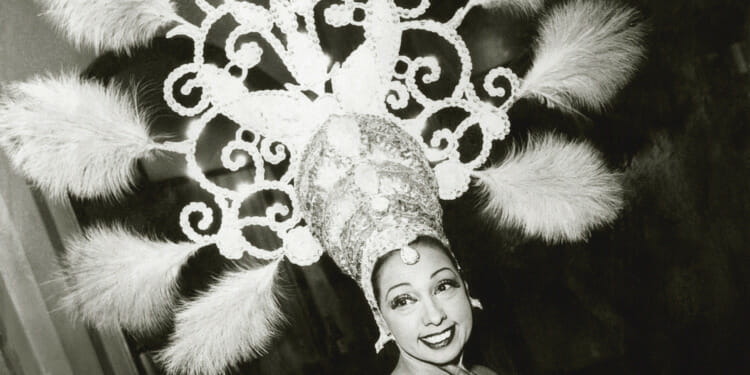Josephine Baker, the U.S born entertainer, activist and French Resistance agent became the first African American woman to receive France’s highest honour being inducted into the Pantheon. Following her marriage to French industrialist Jean Lion in 1937 Baker renounced her U.S citizenship and became a French national.
Baker fled the discrimination of Missouri and found fame in French music halls at just 19, with her vivacious dance routines and lyrical songs Baker’s star continued to rise. Baker joins other French luminaries honored at the site, including philosopher Voltaire, scientist Marie Curie and the most famous writer of the 19th century, Victor Hugo.
Baker aided in the French Resistance during World War II using her stage performances and travels to secretly provide them with information and intelligence about Nazi occupiers. Baker was awarded many honours for her services during the war including: the Resistance Medal by the French Committee of National Liberation, the Croix de Guerre by the French military, and was named a Chevalier of the Légion d’honneur by General Charles de Gaulle.
Her many war medals lay atop her coffin which was draped in a French tricolour flag and contained soil from her birthplace in Missouri, her adopted nation France, and from her final resting place in Monaco. Her family requested that her body remain in its resting place in Monaco so it will be a centatoph that is installed in vault 13 of the crypt in the Pantheon.
Related Articles: Brian Urquhart (1919-2021): Tribute to a United Nations Giant, a Forger of Global Peace | The French King of Rock Reborn – Johnny Hallyday
In both Europe and the U.S Baker was a vocal activist against racism and for human rights. She refused to perform for segregated audiences in the U.S and novelist and playwright Jake Lamar says “she is, I think, the only or certainly one of the few, if not the only, women to speak at the March on Washington in 1963 with Dr Martin Luther King Jr.”
Issues of race and gender are currently creating tension in France as is their fractured relationship with the United States and it is hardly a coincidence that this is the time President Macron chose to honour Ms Baker. He hailed her as “a war hero, fighter, dancer, singer; a Black woman defending Black people but first of all, a woman defending humankind. American and French. Josephine Baker fought so many battles with lightness, freedom, joy.”
Five months out from a very divisive political election President Macron pointed to Josephine Baker as the symbol for unity referring to her as “an American who found refuge in Paris and captured what it is to be French.” He made Baker the example for immigrant success and declared “France is Josephine.”
Elle était tout cela, Joséphine Baker. Un combat pour la France libre. Sans calcul. Sans quête de gloire. Dévouée à nos idéaux.pic.twitter.com/QOtfN69fnV
— Emmanuel Macron (@EmmanuelMacron) November 30, 2021
On that point very few people can disagree with President Macron: All they need to do is refer to perhaps Ms Baker’s most popular song J’ai Deux Amours (I Have Two Loves) where her lyrics state her heart belongs to “Paris et mon pays” (Paris and my country) simultaneously.
Her legacy speaks for itself and she has continued to make history long after her death. May her story continue to inspire others to follow their passions, even if that is the banana dance, to fight for what they believe in and to find the place they feel at home. Vive Josephine Baker.
Editor’s Note: The opinions expressed here by Impakter.com columnists are their own, not those of Impakter.com. — Featured Photo: Josephine Baker in one of her statement costumes. Photo Credit: Allison Marchant










